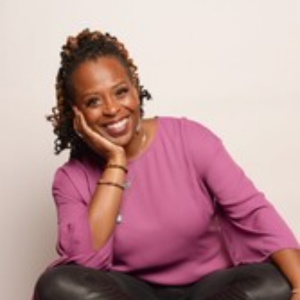Get updates about Alicia D. Williams and recommended reads from Simon & Schuster.
Plus, get a FREE ebook when you sign up!
Spotlight on Alicia D. Williams
On This Page You'll Find:
About the Author:
Alicia D. Williams is the author of Genesis Begins Again, which received Newbery and Kirkus Prize honors, was a William C. Morris Award finalist, and for which she won the Coretta Scott King - John Steptoe Award for New Talent; and picture books Jump at the Sun and The Talk which was also a Coretta Scott King Honor book. An oral storyteller in the African American tradition, she lives in Charlotte, North Carolina.
Spotlight on Mid-Air
A tender-souled boy reeling from the death of his best friend struggles to fit into a world that wants him to grow up tough and unfeeling in this stunning middle grade novel in verse from the Newbery Honor–winning author of Genesis Begins Again.
Q&A
Q: Your upcoming novel Mid-Air intricately explores grief through the main character Isaiah and how it affects the friendships closest to him. Why was it important for you to touch on this theme?
Grief is an emotion that I’d been struggling with for some time now. Like many others, through the years I’ve lost many family members. Yet, after each funeral, I never allowed myself space to grieve. I got back to work in order to provide for my daughter. I swallowed the pain and kept moving forward. We all have our own bouts with grief, and I believe we’ve been collectively grieving for years. Our hurt has been stirred and compounded as a result of the pandemic as well as the social justice issues happening in our country. Yet, we all deal with this heavy burden differently. I wanted to not only work through my own healing but explore how a gentle boy like Isaiah may express his pain compared Drew, who represents the “tough boys don’t cry” trait that we impose on young men. Through this exploration, it became a desire that the characters could offer space for young people to discuss their own grief.
Q: In line with your debut novel Genesis Begins Again, Mid-Air also hones on the need for Black children to identify who they are to themselves before accepting being labeled by others. What do you hope young readers can draw from the journey of self-discovery that Genesis and Isaiah each go through?
Parents, society, teachers, counselors, social media, advertisers—everyone—has expectations on how children should act, who they should aspire to be, how they should look, who they should love, and even what career they should choose. It seems as if no identifier is off limits or left for young people to choose for themselves. These expectations can leave many feeling as if they’re not good enough, not pretty enough, not smart enough—plainly not enough. They could also lead others down the dangerous road of perfection and comparison. Perhaps that is why I write what I do. I want to offer stories the embolden children to be themselves. I want them to dare to question what they believe about themselves, for themselves, and not blindly accept the labels of others. I suppose I wanted to be brave enough to live my life with authenticity, but for far too long I was too afraid of what others thought. I wore clothes to fit in. I yo-yo dieted to ease into the popular cliques. I compared myself over and over to other people. My stories remind me to dare to be myself, and I hope they give readers the same courage.
Q: How would you describe your process as a writer? Is it easier to write picture books, middle grade, or YA?
I think process is tricky because we writers want a magic formula. We look at successful authors and wonder what craft books they’ve read, which workshops they’ve attended, which typing programs they use, and want to duplicate those specific steps. I don’t have one process. I might type away everyday like I did with Genesis Begins Again. I may get a notebook and pencil and begin with an event like in Mid-Air. Or, start with a folktale like I did with Jump at the Sun: The True Life Tale of Unstoppable Storycatcher Zora Neale Hurston. Or be woken in the middle of the night by a talkative little boy as with The Talk. I write the story that tugs at my spirit. And each story dictates how it should be told and determines the process. Every story is both easy and challenging. Tackling plot, character arcs, story arcs, voice, dialogue, emotional resonance is rollercoaster, yet I remind myself that writing is a privilege. Me telling stories is an honor. And I seek joy in wrestling with words and molding characters.
Q: As a fellow teacher, you know how important it is to encourage students to reach their full potential. Who was that teacher for you?
Ms. Hill was in fact Ms. Hill, and now Ms. Shushanna Shakur. She was a long-term substitute teacher at my high school, Mumford High, in Detroit, Michigan. She saw us. Saw every single one of us. She listened to our incessant talking and was always personable and approachable. Plus, she advocated for students and taught us to do it for ourselves. If any student had an idea, she encouraged it. In my senior year, I approached Ms. Hill about wanting to duplicate the Big Brothers and Big Sisters model for seniors and younger students. She jumped on the idea, helped me to plan it, found the young students, and we even had an outing at Belle Island. I felt so successful and validated. I believe she was a model teacher, and every kid needs a Ms. Hill.
The Talk Read Aloud with Alicia D. Williams
More Resources
Join the Conversation
Author Alerts









